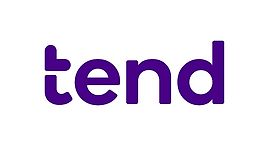East Auckland > GPs / Accident & Urgent Medical Care > East Health Trust >
Tend Pakuranga Medical Centre
General Practice (GP) Service
Today
8:00 AM to 6:00 PM.
Description
Tend Pakuranga is a full-service primary healthcare provider that offers both online and in-clinic GP services. We offer patients a healthcare experience designed around today's kind of living.
Enjoy improved access to care, greater control of your health and a stronger connection with your care team.
From the Tend app you can:
* Order repeat prescriptions
* Book appointments
* See a doctor online
* See consult notes
* Manage your medication
* Message your care team
* Check test results
This is healthcare designed around you and your family; healthcare anytime, anywhere and for everything you’d expect from your GP. Removing the hassle, giving back time, putting you in control.
We are a Cornerstone Accredited Centre since 2008. This is assessed regularly by the Royal New Zealand College of General Practitioners ensuring high quality standards are consistently met.
Other services available on site include: Psychology, Podiatry, Gastroenterology, Physiotherapy, Lab, Dentist, Radiology, Oral and Maxillofacial Surgeon and Pharmacy as well as a large number of community services through our general practice.
Complete support for and your whānau where you are and where you’ll be, at every stage of life.
Tend. Your home for health.
Download the app today and put your healthcare in your hands.
Doctors
-
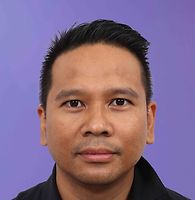
Dr Nazlee Abdullah
General Practitioner
-

Dr Teresa Booth
General Practitioner - Vocationally Registered
-

Dr Mary Hung
General Practitioner - Vocationally Registered
-

Dr Bushra Kadhim
General Practitioner - Vocationally Registered
-

Dr Martin Lee
General Practitioner
-

Dr Lorraine McKinstry
General Practitioner - Vocationally Registered
-

Dr Richard Mercer
General Practitioner - Vocationally Registered
-

Dr Ji-Young Park
General Practitioner
-
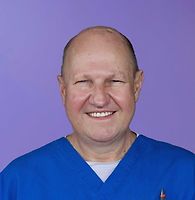
Dr Simon Russell
General Practitioner - Vocationally Registered
-
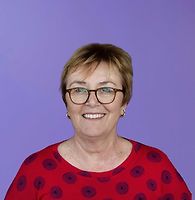
Dr Eileen Sables
General Practitioner - Vocationally Registered
-
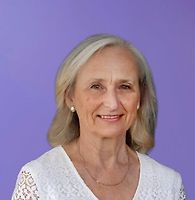
Dr Barbara Schafer
General Practitioner - Vocationally Registered
-

Dr Helena Simpson Caballero
General Practitioner
-

Dr Nigel Tay
General Practitioner - Vocationally Registered
-
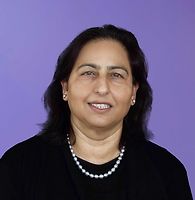
Dr Vimmi Thakur
General Practitioner - Vocationally Registered
How do I access this service?
Website / App
Click here to visit the Tend website.
Click here to download the Tend app.
Enrolled patients
Download the Tend app to enrol.
Click here to download the Tend app.
Casual (not enrolled) patients
Download the Tend app to see us casually.
Click here to download the Tend app.
Make an appointment
Download the Tend app to make an appointment.
Click here to download the Tend app.
Enrolling new patients
Yes
This practice is enrolling new patients.
Fees
Enrolled Patient Fees
| Age Range | Without CSC | With CSC |
|---|---|---|
| Under 6 years | Free | Free |
| 6 to 13 years | Free | Free |
| 14 to 17 years | $46.95 | $13.00 |
| 18 to 24 years | $57.95 | $19.50 |
| 25 to 44 years | $64.95 | $19.50 |
| 45 to 64 years | $64.95 | $19.50 |
| 65+ years | $64.95 | $19.50 |
Casual patient fees are $79.95
Please click here to view all our fees.
Hours
8:00 AM to 6:00 PM.
| Mon | 8:00 AM – 6:00 PM |
|---|---|
| Tue | 8:00 AM – 7:00 PM |
| Wed | 8:00 AM – 6:00 PM |
| Thu | 8:00 AM – 7:00 PM |
| Fri | 8:00 AM – 6:00 PM |
Public Holidays: Closed Auckland Anniversary (27 Jan), Waitangi Day (6 Feb), Good Friday (18 Apr), Easter Sunday (20 Apr), Easter Monday (21 Apr), ANZAC Day (25 Apr), King's Birthday (2 Jun), Matariki (20 Jun), Labour Day (27 Oct).
Christmas: Open 23 Dec — 24 Dec. Closed 25 Dec — 26 Dec. Open 27 Dec. Closed 28 Dec — 29 Dec. Open 30 Dec — 31 Dec. Closed 1 Jan — 2 Jan. Open 3 Jan. Closed 4 Jan — 5 Jan. Open 6 Jan — 10 Jan.
Preferred urgent care clinic out of hours: East Care Urgent Care.
Languages Spoken
Chinese, French, German, Korean, Mandarin Chinese, Russian, Arabic, Hindi, Punjabi, Urdu
Services Provided
Getting a COVID-19 vaccine is an important step you can take to protect yourself, your kaumātua and whānau from the effects of the virus. For more information on the COVID-19 vaccines and eligibility visit Ministry of Health - COVID-19 vaccines Covid-19 vaccines can be administered before, after, or at the same time as other national schedule vaccines. When the Nuvaxovid vaccine is given at the same time as the Shingrix shingles vaccine or the Fluad Quad flu vaccine, there may be a chance of experiencing a stronger post-vaccination response and you should discuss this with your vaccinator. If you meet the current criteria please phone the practice to make an appointment.
Getting a COVID-19 vaccine is an important step you can take to protect yourself, your kaumātua and whānau from the effects of the virus. For more information on the COVID-19 vaccines and eligibility visit Ministry of Health - COVID-19 vaccines Covid-19 vaccines can be administered before, after, or at the same time as other national schedule vaccines. When the Nuvaxovid vaccine is given at the same time as the Shingrix shingles vaccine or the Fluad Quad flu vaccine, there may be a chance of experiencing a stronger post-vaccination response and you should discuss this with your vaccinator. If you meet the current criteria please phone the practice to make an appointment.
- Pfizer vaccine (12+ years) OR Pfizer booster (16+ years)
- Child Pfizer vaccine (5-11 years)
- Anyone currently eligible can access
- Make an appointment
Getting a COVID-19 vaccine is an important step you can take to protect yourself, your kaumātua and whānau from the effects of the virus. For more information on the COVID-19 vaccines and eligibility visit Ministry of Health - COVID-19 vaccines
Covid-19 vaccines can be administered before, after, or at the same time as other national schedule vaccines. When the Nuvaxovid vaccine is given at the same time as the Shingrix shingles vaccine or the Fluad Quad flu vaccine, there may be a chance of experiencing a stronger post-vaccination response and you should discuss this with your vaccinator.
If you meet the current criteria please phone the practice to make an appointment.
Immunisation is the safest and most effective way to provide protection for you and your tamariki’s health. For more information view the NZ immunisation schedule.
Immunisation is the safest and most effective way to provide protection for you and your tamariki’s health. For more information view the NZ immunisation schedule.
- Pregnancy vaccinations
- Childhood immunisation programme
- 45 year old vaccinations
- 65 year old vaccinations
- Adult flu vaccine
- Child flu vaccine
- Diphtheria / Tetanus / Pertussis (whooping cough) vaccine
- Human Papillomavirus (HPV) vaccine
- Measles / Mumps / Rubella (MMR) vaccine
- Meningococcal vaccine
- Shingles vaccine
- Travel vaccinations
Immunisation is the safest and most effective way to provide protection for you and your tamariki’s health. For more information view the NZ immunisation schedule.
Your GP's surgery is far more than a place to go when you are feeling unwell and needing a quick cure. The doctor who sees you has gone through an extensive medical training to equip her or him to help children and adults of all ages with a range of physical and emotional difficulties. GPs are at the centre of the healthcare hub and will be aware of services and expertise that are available locally and further-a-field. GPs are also aware of the link that stress and unhappy life events have on physical health so know when to suggest a talking therapy rather than medication.
Your GP's surgery is far more than a place to go when you are feeling unwell and needing a quick cure. The doctor who sees you has gone through an extensive medical training to equip her or him to help children and adults of all ages with a range of physical and emotional difficulties. GPs are at the centre of the healthcare hub and will be aware of services and expertise that are available locally and further-a-field. GPs are also aware of the link that stress and unhappy life events have on physical health so know when to suggest a talking therapy rather than medication.
Your GP's surgery is far more than a place to go when you are feeling unwell and needing a quick cure. The doctor who sees you has gone through an extensive medical training to equip her or him to help children and adults of all ages with a range of physical and emotional difficulties. GPs are at the centre of the healthcare hub and will be aware of services and expertise that are available locally and further-a-field. GPs are also aware of the link that stress and unhappy life events have on physical health so know when to suggest a talking therapy rather than medication.
Minor surgery is commonly provided in primary care practices, providing fast, competent removal and biopsies of skin lesions. Other services include cosmetic work such as removal of benign moles and skin tags. Ingrown toenail surgery is also commonly provided. These conditions do not need to be referred to a hospital, perhaps saving you a long wait or a cancelled appointment when a more serious case takes priority.
Minor surgery is commonly provided in primary care practices, providing fast, competent removal and biopsies of skin lesions. Other services include cosmetic work such as removal of benign moles and skin tags. Ingrown toenail surgery is also commonly provided. These conditions do not need to be referred to a hospital, perhaps saving you a long wait or a cancelled appointment when a more serious case takes priority.
Minor surgery is commonly provided in primary care practices, providing fast, competent removal and biopsies of skin lesions. Other services include cosmetic work such as removal of benign moles and skin tags. Ingrown toenail surgery is also commonly provided.
These conditions do not need to be referred to a hospital, perhaps saving you a long wait or a cancelled appointment when a more serious case takes priority.
Each GP surgery or primary care practice will have its own procedure for repeat prescribing but the following rules are common to most, if not all. Patients who are well-known to the practice who have a stable condition like asthma, hypertension or diabetes could be allowed to get a repeat prescription for up to six months. Repeat prescriptions are never given to patients who are not known to the practice and there is probably a blanket ban on repeats for narcotics and other drugs that could be misused as doctors are expected to monitor these drugs carefully.
Each GP surgery or primary care practice will have its own procedure for repeat prescribing but the following rules are common to most, if not all. Patients who are well-known to the practice who have a stable condition like asthma, hypertension or diabetes could be allowed to get a repeat prescription for up to six months. Repeat prescriptions are never given to patients who are not known to the practice and there is probably a blanket ban on repeats for narcotics and other drugs that could be misused as doctors are expected to monitor these drugs carefully.
Each GP surgery or primary care practice will have its own procedure for repeat prescribing but the following rules are common to most, if not all. Patients who are well-known to the practice who have a stable condition like asthma, hypertension or diabetes could be allowed to get a repeat prescription for up to six months. Repeat prescriptions are never given to patients who are not known to the practice and there is probably a blanket ban on repeats for narcotics and other drugs that could be misused as doctors are expected to monitor these drugs carefully.
Sometimes your doctor needs to take a sample of blood or urine either to discover what is wrong with you or to measure something in your blood so that the right medication is given to you. These tests could be anything from blood sugar to a full blood count or a sample of tissue to test for cancer. While urine can generally be tested in the surgery, blood and other specimens are usually sent away for testing at a laboratory. Most results come back within 48 hours unless a very rare test is needed which has to go to a specialist lab further away when it might take a little longer.
Sometimes your doctor needs to take a sample of blood or urine either to discover what is wrong with you or to measure something in your blood so that the right medication is given to you. These tests could be anything from blood sugar to a full blood count or a sample of tissue to test for cancer. While urine can generally be tested in the surgery, blood and other specimens are usually sent away for testing at a laboratory. Most results come back within 48 hours unless a very rare test is needed which has to go to a specialist lab further away when it might take a little longer.
Sometimes your doctor needs to take a sample of blood or urine either to discover what is wrong with you or to measure something in your blood so that the right medication is given to you. These tests could be anything from blood sugar to a full blood count or a sample of tissue to test for cancer.
While urine can generally be tested in the surgery, blood and other specimens are usually sent away for testing at a laboratory. Most results come back within 48 hours unless a very rare test is needed which has to go to a specialist lab further away when it might take a little longer.
Liquid nitrogen is a fast, effective treatment provided in many practices to treat viral warts, sun damaged skin, skin tags and many benign cosmetic lesions. It comes in a container with a nozzle and is usually applied by swab or spray. Often one treatment is all that is needed but sometimes it may need repeating after two weeks. Because it cannot be stored for too long, you will often find that your GP will treat a number of patients one after the other. For more information click here.
Liquid nitrogen is a fast, effective treatment provided in many practices to treat viral warts, sun damaged skin, skin tags and many benign cosmetic lesions. It comes in a container with a nozzle and is usually applied by swab or spray. Often one treatment is all that is needed but sometimes it may need repeating after two weeks. Because it cannot be stored for too long, you will often find that your GP will treat a number of patients one after the other. For more information click here.
Liquid nitrogen is a fast, effective treatment provided in many practices to treat viral warts, sun damaged skin, skin tags and many benign cosmetic lesions. It comes in a container with a nozzle and is usually applied by swab or spray. Often one treatment is all that is needed but sometimes it may need repeating after two weeks.
Because it cannot be stored for too long, you will often find that your GP will treat a number of patients one after the other.
For more information click here.
LARC methods are very effective at preventing unplanned pregnancy and are “fit and forget” forms of contraception – you don’t need to remember them every day or every month. LARC methods: Intrauterine Contraceptive Devices (IUCD or IUD) are inserted through the cervix into a woman’s uterus. IUCDs may be either hormonal (Mirena® or Jaydess® ) or non-hormonal (copper IUCD). Jadelle® is a hormone-releasing implant that is inserted just under the skin of the upper arm. Depending on the type of device, it will need to be changed after between three and ten years. Read more about LARC methods here
LARC methods are very effective at preventing unplanned pregnancy and are “fit and forget” forms of contraception – you don’t need to remember them every day or every month. LARC methods: Intrauterine Contraceptive Devices (IUCD or IUD) are inserted through the cervix into a woman’s uterus. IUCDs may be either hormonal (Mirena® or Jaydess® ) or non-hormonal (copper IUCD). Jadelle® is a hormone-releasing implant that is inserted just under the skin of the upper arm. Depending on the type of device, it will need to be changed after between three and ten years. Read more about LARC methods here
LARC methods are very effective at preventing unplanned pregnancy and are “fit and forget” forms of contraception – you don’t need to remember them every day or every month. LARC methods:
- Intrauterine Contraceptive Devices (IUCD or IUD) are inserted through the cervix into a woman’s uterus. IUCDs may be either hormonal (Mirena® or Jaydess® ) or non-hormonal (copper IUCD).
- Jadelle® is a hormone-releasing implant that is inserted just under the skin of the upper arm.
Depending on the type of device, it will need to be changed after between three and ten years.
Read more about LARC methods here
All women and people with a cervix aged 25 – 69 who have ever had intimate skin-to-skin contact or been sexually active should have regular cervical screening. This includes women who have been immunised against HPV. Together, regular screening and HPV immunisation provide the best protection against cervical cancer. There are now more options for how you have cervical screening done: a simple vaginal swab test for HPV, either done yourself or with help from a healthcare professional a cervical sample taken by a healthcare professional (used to be known as a smear test). Talk with your healthcare provider to decide which option is best for you. If HPV is found, you may need to have a follow-up test or be referred directly for colposcopy. If you’ve not yet had HPV testing, you should be screened 3 years after your last test (or 1 year if immune deficient). Once you have had an HPV test, and providing HPV is not found, your next screening will be in 5 years (or 3 years if immune deficient). For more information: Cervical screening | Time to Screen - National Screening Unit
All women and people with a cervix aged 25 – 69 who have ever had intimate skin-to-skin contact or been sexually active should have regular cervical screening. This includes women who have been immunised against HPV. Together, regular screening and HPV immunisation provide the best protection against cervical cancer. There are now more options for how you have cervical screening done: a simple vaginal swab test for HPV, either done yourself or with help from a healthcare professional a cervical sample taken by a healthcare professional (used to be known as a smear test). Talk with your healthcare provider to decide which option is best for you. If HPV is found, you may need to have a follow-up test or be referred directly for colposcopy. If you’ve not yet had HPV testing, you should be screened 3 years after your last test (or 1 year if immune deficient). Once you have had an HPV test, and providing HPV is not found, your next screening will be in 5 years (or 3 years if immune deficient). For more information: Cervical screening | Time to Screen - National Screening Unit
All women and people with a cervix aged 25 – 69 who have ever had intimate skin-to-skin contact or been sexually active should have regular cervical screening. This includes women who have been immunised against HPV. Together, regular screening and HPV immunisation provide the best protection against cervical cancer.
There are now more options for how you have cervical screening done:
- a simple vaginal swab test for HPV, either done yourself or with help from a healthcare professional
- a cervical sample taken by a healthcare professional (used to be known as a smear test).
Talk with your healthcare provider to decide which option is best for you.
If HPV is found, you may need to have a follow-up test or be referred directly for colposcopy.
If you’ve not yet had HPV testing, you should be screened 3 years after your last test (or 1 year if immune deficient). Once you have had an HPV test, and providing HPV is not found, your next screening will be in 5 years (or 3 years if immune deficient).
For more information: Cervical screening | Time to Screen - National Screening Unit
An ECG is a recording of your heart's electrical activity. Electrode patches are attached to your skin to measure the electrical impulses given off by your heart. The result is a trace that can be read by a doctor. It can give information of previous heart attacks or problems with the heart rhythm.
An ECG is a recording of your heart's electrical activity. Electrode patches are attached to your skin to measure the electrical impulses given off by your heart. The result is a trace that can be read by a doctor. It can give information of previous heart attacks or problems with the heart rhythm.
An ECG is a recording of your heart's electrical activity. Electrode patches are attached to your skin to measure the electrical impulses given off by your heart. The result is a trace that can be read by a doctor. It can give information of previous heart attacks or problems with the heart rhythm.
Spirometry is a tool that measures how effectively your lungs are working. It is able to show how much air lungs are able to hold (their volume) and how much air can be breathed in and out (inhaled and exhaled) which is called flow. This tool is used to assess damage caused by conditions like COPD (chronic obstructive pulmonary disease – a group that includes bronchitis and emphysema), pulmonary fibrosis, cystic fibrosis and asthma. Results are shown on a graph called a pneumotachograph. For more information click on the following link http://en.wikipedia.org/wiki/Spirometry
Spirometry is a tool that measures how effectively your lungs are working. It is able to show how much air lungs are able to hold (their volume) and how much air can be breathed in and out (inhaled and exhaled) which is called flow. This tool is used to assess damage caused by conditions like COPD (chronic obstructive pulmonary disease – a group that includes bronchitis and emphysema), pulmonary fibrosis, cystic fibrosis and asthma. Results are shown on a graph called a pneumotachograph. For more information click on the following link http://en.wikipedia.org/wiki/Spirometry
Spirometry is a tool that measures how effectively your lungs are working. It is able to show how much air lungs are able to hold (their volume) and how much air can be breathed in and out (inhaled and exhaled) which is called flow. This tool is used to assess damage caused by conditions like COPD (chronic obstructive pulmonary disease – a group that includes bronchitis and emphysema), pulmonary fibrosis, cystic fibrosis and asthma. Results are shown on a graph called a pneumotachograph.
For more information click on the following link http://en.wikipedia.org/wiki/Spirometry
Another service offered to you at your GP surgery (primary care practice) is advice and immunisation before you go to another country. While you are likely to have the immunisations needed to live in New Zealand, there may be other injections you need to protect yourself before going for example to Africa or South America. In some places you will need protection from rabies or malaria. Yellow fever vaccinations are only available at approved centres; please click here to view the centres in New Zealand. Your doctor will be able to tell you what diseases you will need to be protected from in any named country and advise you on other medical matters.
Another service offered to you at your GP surgery (primary care practice) is advice and immunisation before you go to another country. While you are likely to have the immunisations needed to live in New Zealand, there may be other injections you need to protect yourself before going for example to Africa or South America. In some places you will need protection from rabies or malaria. Yellow fever vaccinations are only available at approved centres; please click here to view the centres in New Zealand. Your doctor will be able to tell you what diseases you will need to be protected from in any named country and advise you on other medical matters.
Another service offered to you at your GP surgery (primary care practice) is advice and immunisation before you go to another country. While you are likely to have the immunisations needed to live in New Zealand, there may be other injections you need to protect yourself before going for example to Africa or South America. In some places you will need protection from rabies or malaria. Yellow fever vaccinations are only available at approved centres; please click here to view the centres in New Zealand. Your doctor will be able to tell you what diseases you will need to be protected from in any named country and advise you on other medical matters.
A patient portal is a secure online tool provided by GP practices that can allow convenient access to your health information as well as interaction with the practice e.g. booking appointments and requesting repeat prescriptions. Download the Tend app to book appointments, order repeat prescriptions, see test results, chat to the care team, manage your medications and more.
A patient portal is a secure online tool provided by GP practices that can allow convenient access to your health information as well as interaction with the practice e.g. booking appointments and requesting repeat prescriptions. Download the Tend app to book appointments, order repeat prescriptions, see test results, chat to the care team, manage your medications and more.
A patient portal is a secure online tool provided by GP practices that can allow convenient access to your health information as well as interaction with the practice e.g. booking appointments and requesting repeat prescriptions.
Download the Tend app to book appointments, order repeat prescriptions, see test results, chat to the care team, manage your medications and more.
Special Assistance Support (COVID-19 Vaccination)
Special Assistance Support (COVID-19 Vaccination)
- Support to make decisions
- Assistance to move around
- Quiet, low sensory environment
- A longer appointment time
- More space to move around
- Wheelchair access
If you would like additional support or assistance at your vaccine appointment, you can let us know when you book your slot.
Disability Assistance
Wheelchair access, Quiet, low sensory environment, A longer appointment time, Support to make decisions, Assistance to move around, More space to move around
Additional Details
LGBTQIA+ friendly, Online / virtual / app, Child / Tamariki friendly, Speak with men / tane, Speak with women / wahine, Face to face / Kanohi ki te Kanohi
Online Booking URL
Public Transport
Located in Pakuranga, you can visit Tend Pakuranga Medical Centre by using the Eastern Busway network. Bus Stop 6129 on Ti Rakau Drive 5 mins walk away.
Parking
Plenty of patient parking is available with entry via Cortina Place at the back of the building.
Contact Details
11-13 Cortina Place, Pakuranga, Auckland
East Auckland
8:00 AM to 6:00 PM.
-
Phone
09 300 5076
Healthlink EDI
lovetend
Email
Website
11-13 Cortina Place
Pakuranga
Howick
Auckland 2010
Street Address
11-13 Cortina Place
Pakuranga
Howick
Auckland 2010
Postal Address
C/-11-13
Unit 203
11 Cortina Place
Pakuranga
Auckland 2010
Was this page helpful?
This page was last updated at 1:43PM on October 7, 2024. This information is reviewed and edited by Tend Pakuranga Medical Centre.

